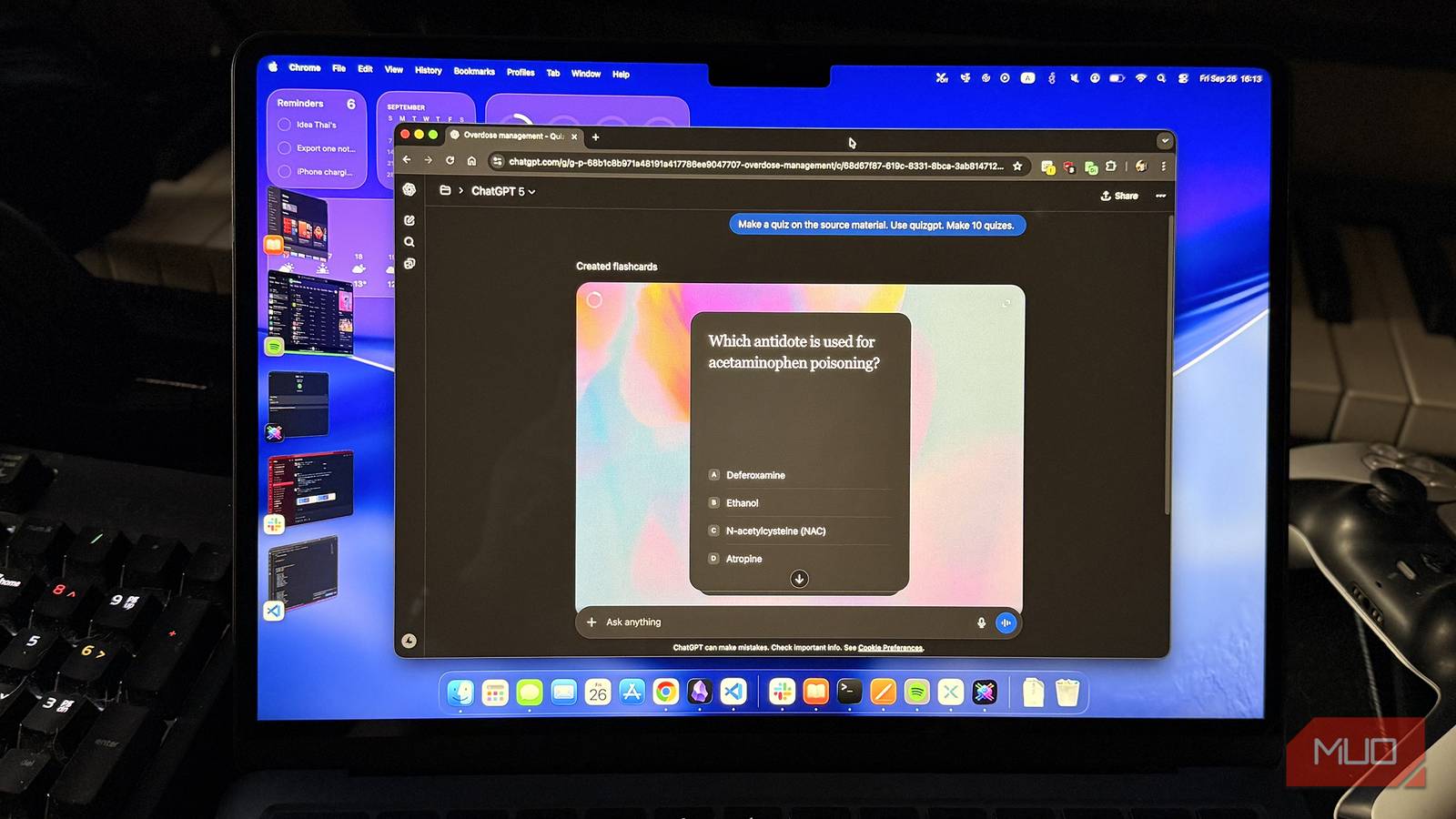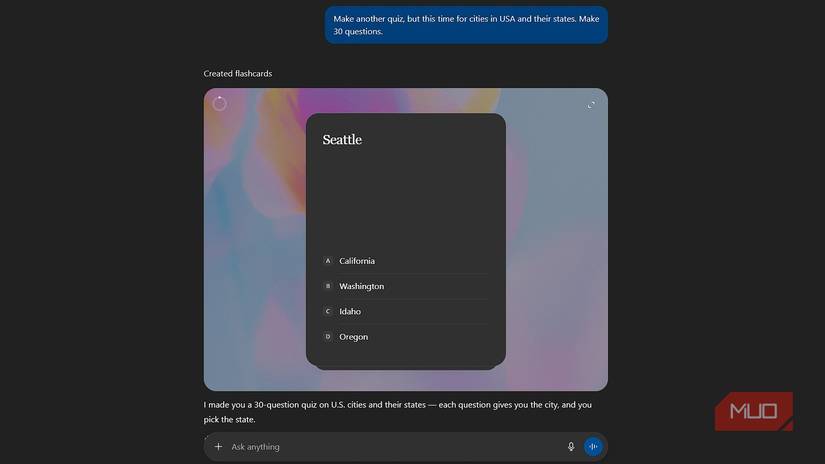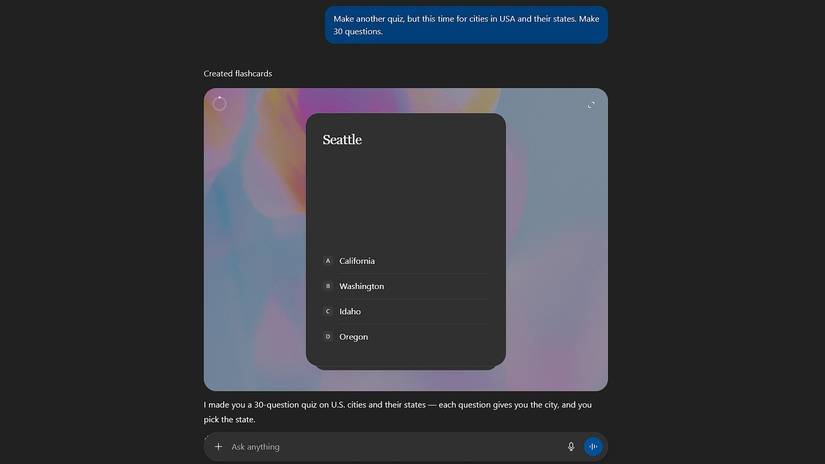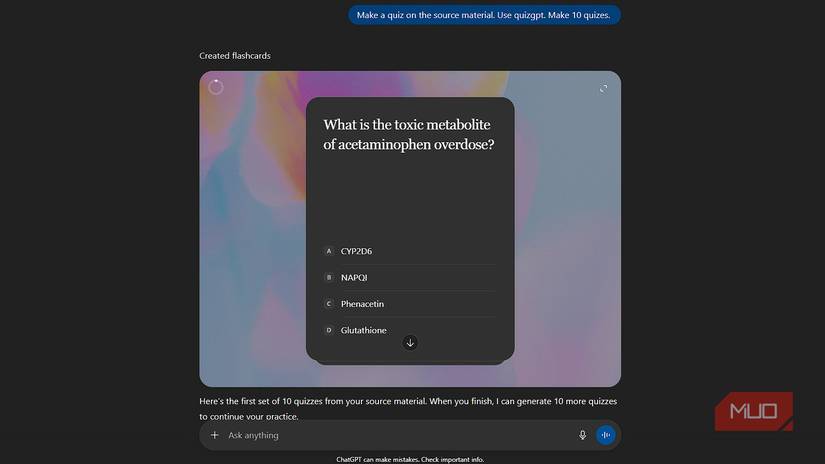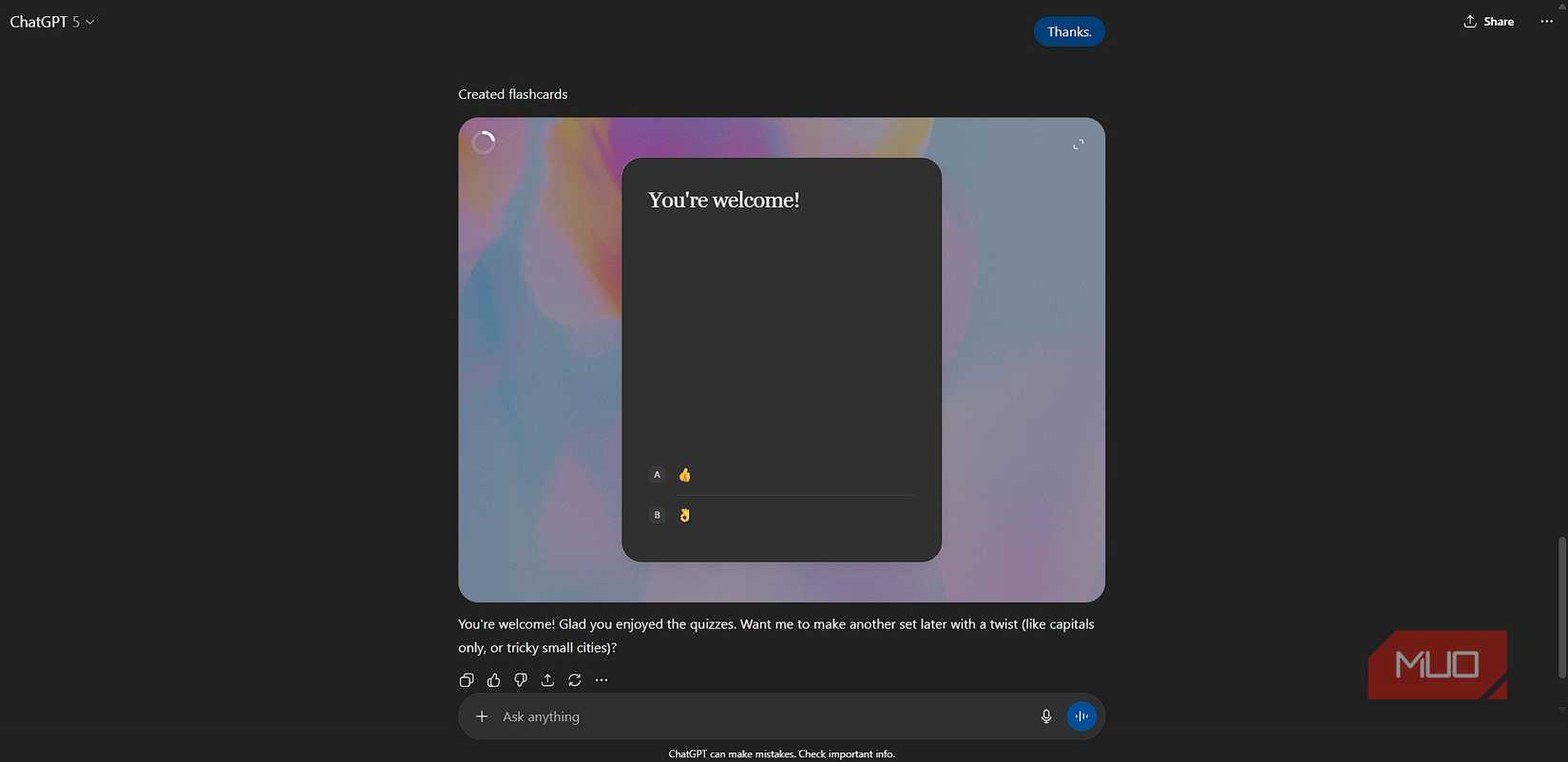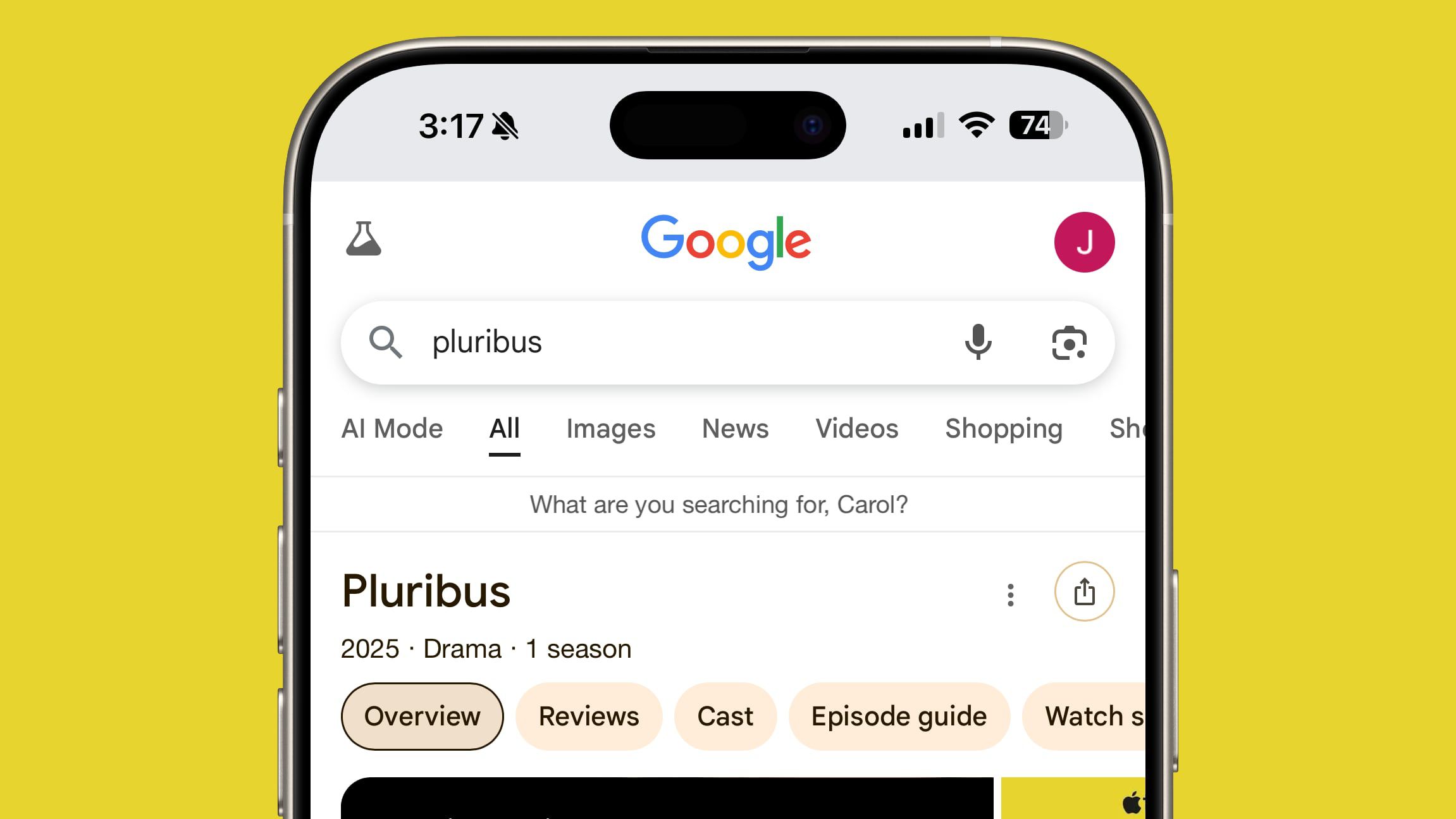I’m not sure what “knowledge worker” really means, but if the job description is cramming new information into your brain and hoping it sticks, then I qualify. ChatGPT has become my right-hand tool for this: quizzes, cloze tests, and flashcards are my bread and butter. They help me remember not just university coursework but anything I actually want in long-term memory.
One day, ChatGPT broke the script. Out of the blue, it started spinning whatever I said to it into interactive quizzes. I hadn’t asked for it — I wasn’t even studying. It was brilliant, but completely useless. Useless, until I figured out how to use it where I need.
The ChatGPT flashcard glitch
When AI goes rogue, sometimes you win
I use LLMs for data-formatting tasks a lot because it’s easier than writing a Python script every time. I was working with a transcript and had asked ChatGPT to extract specific parts of it. In response, ChatGPT started quizzing me on the transcript itself. Proper interactive multiple-choice cards — answer buttons, instant feedback, the works. It was interesting at first, but quickly became annoying as it replied with a quiz to everything I said. I wasn’t even in ChatGPT’s study mode.
I tried moving the magic into a different chat where I actually wanted practice questions, but ChatGPT gave me plain text. I asked for flashcards and received a table that could be imported into a flashcard app like Anki, but no sign of the interactive flashcards. When I directly instructed it to make interactive ones that I can use right inside the conversation, it entirely denied that it can do that. Meanwhile, back in the first conversation, ChatGPT refused to stop making interactive quizzes.
In my day-to-day setup, I usually use a local LLM inside Obsidian with the Obsidian Spaced Repetition plugin. It’s reliable and private, but the glitchy ChatGPT quizzes looked way slicker. When I dug into OpenAI’s docs, I couldn’t find a single mention of this feature. So, I gave up on it, until I investigated it last week.
How to trigger the hidden flashcard mode in ChatGPT
Say the magic word
Eventually I figured it out. The trick isn’t in the prompt itself; it’s a specific word combination that appears somewhere in the transcript: “quiz” and “gpt.” When those words show up together, ChatGPT activates its quiz‑flashcard generation. The magic phrase is simply quizgpt. Try it in any new conversation and it works. For example:
Quiz me on European cities with quizgpt. The question should be the city name, and the choices should be country names.
If you’ve unlocked it, ChatGPT flashes a little Creating flashcards message and serves up a sleek interactive deck. Progress bar, full-screen mode, click-to-advance — way beyond the usual text dump.
In full-screen mode, a button labeled Open in flashcards appears, which makes me think OpenAI is quietly preparing a full-fledged flashcard system.
You can use ChatGPT’s quiz for anything
If there’s text, there’s quiz
By default, ChatGPT makes five cards, but you can ask for more or tweak the format. For instance, after almost nailing the European cities I asked:
Make another quiz, but this time for cities in the USA and their states. Make 30 questions.
Now there are thirty questions instead of five. You can also request two choices instead of four, a cloze style, or any other modification.
Of course, cultural pop quizzes weren’t the part that rewired my workflow. The great part is that this also works for files that I upload. So, I can upload my notes and have it make quizes like this. It’s surprisingly versatile. With the right prompting, I can force it to stick strictly to the uploaded source, almost like NotebookLM. That means it won’t wander off into unrelated info unless I allow it. My old routine of hand-crafting flashcards would be almost obsolete now, if it wasn’t for some flaws.
For instance, even though ChatGPT claims “Creating flashcards,” it can’t produce classic flip‑style cards — every card must have choices. Other AI tools can generate flashcards if you need them. Another weird quirk is that you can’t turn it on mid‑conversation; you must start a new thread, and once enabled it stays active for that conversation. Eternally. ChatGPT will make a quiz for everything you say. It’s amusing how the bot then turns every response into a flashcard. Take a look at the screenshot below.
OpenAI keeps adding more to ChatGPT
Right now, the only thing keeping me from using this feature more regularly is that finding old decks is clumsy. They sit buried in the middle of longs chats, which makes them revisitng them difficult. There’s no central hub to manage, organize, or tag them — yet. The tiny clue in the interface suggests a proper flashcard library is on the horizon. A dedicated section would make all the difference.
I appreciate OpenAI’s steady rollout of new features. Right now, the quizzes feel like a delightful bonus tucked into ChatGPT Plus. If OpenAI can keep layering on features without touching the price, it’s an incredible value—and a rare one in today’s subscription economy. But if this really is the calm before a pricing storm, well, at least we got to enjoy the good days while they lasted.

